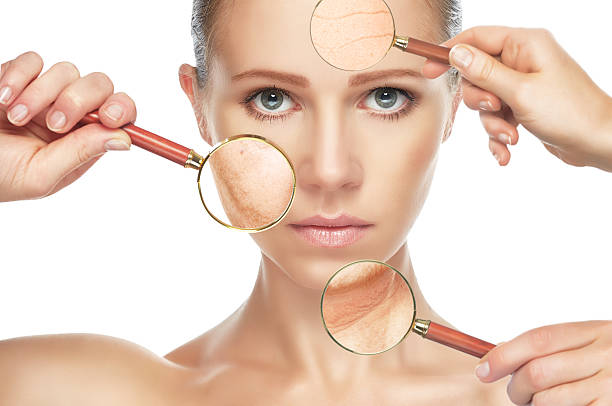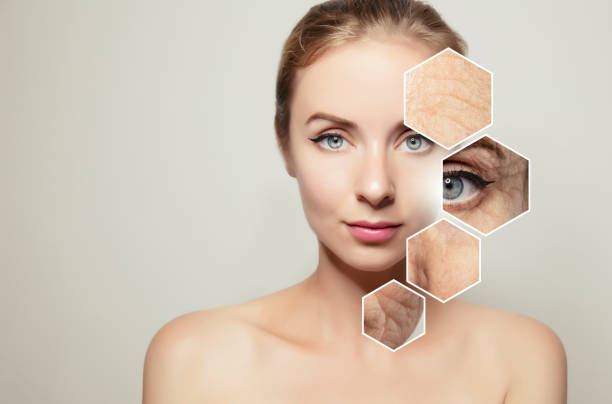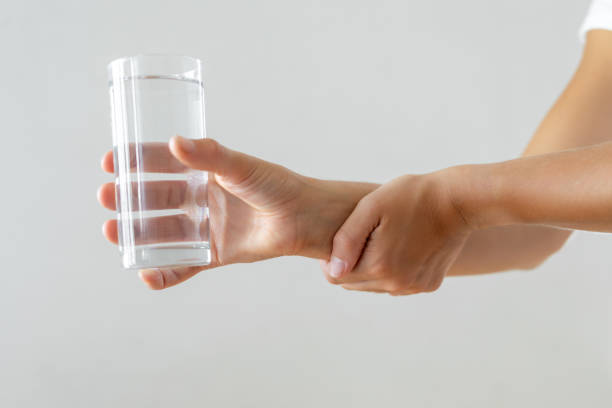Introduction
The skin is the body’s largest organ, protecting against hazards, regulating temperature and providing touch. This essay explores the skin’s structure, functions, types, and their implications on skincare.
Importance of Skin in Human Health
Skin is not just a superficial covering; it is integrally involved in maintaining the homeostasis of the body. It protects internal organs from mechanical impacts, bacterial invasions, and harmful ultraviolet (UV) radiation. Moreover, when exposed to sunlight, the skin is instrumental in synthesizing Vitamin D, a vital nutrient for bone health and immune function. Its sensory receptors enable us to experience touch, pain, and temperature changes, connecting us to the external world in a tangible way. The condition of our skin often reflects our overall health, making it crucial to understand its functions and how to care for it.
Overview of the Essay Content
This essay will provide a detailed exploration of the skin, beginning with a basic overview of its definition and the vital roles it plays in the human body. We will examine the skin’s layers and their specific functions. Following this, we will classify different skin types and discuss how these types can influence individual skincare routines. This discussion aims to enhance the reader’s understanding of their skin and to offer insights into effective skincare practices suited to their unique skin type.
The Skin: A Basic Overview

Definition and Functions of Skin
The skin is a dynamic and complex organ that covers the body’s entire external surface. It serves multiple purposes, such as acting as a protective barrier, regulating temperature, and managing sensory information. The skin is involved in excretion through sweat, aids in immune response, and is instrumental in vitamin D synthesis. Understanding these functions is crucial for appreciating why proper skincare is not just about appearance but also about maintaining these vital functions.
Layers of the Skin: Epidermis, Dermis, Hypodermis
The skin is made up of three main layers, each with a unique structure and function.
- Epidermis: This is the outermost layer, which is visible. It consists of cells that provide a waterproof barrier and create our skin tone. The epidermis is constantly regenerating, shedding old cells to make way for new ones, which is essential for healthy skin.
- Dermis: Beneath the epidermis lies the dermis, which contains hair follicles, sweat glands, and connective tissue. It’s responsible for the skin’s elasticity and strength. The dermis houses nerve endings that sense pain and touch, making it a critical component of our sensory experience.
- Hypodermis: The deepest layer, the hypodermis, is made of fat and connective tissue. It helps insulate the body, absorb shock, and anchor the skin to underlying structures. This layer plays a vital role in regulating body temperature and storing energy.
Skin Types and Characteristics

Identifying Different Skin Types: Normal, Oily, Dry, Combination
Skin type is determined by genetics and influenced by various factors like diet, environment, and lifestyle. The main skin types are:
- Normal Skin: Well-balanced and neither too oily nor too dry. This skin type has a smooth texture and a clear, radiant appearance.
- Oily Skin: Characterized by excess sebum production, leading to a shiny appearance and prone to acne and other blemishes.
- Dry Skin: Lacks adequate moisture, often feels tight, and may show signs of flaking. Skin that lacks moisture is more prone to both aging and irritation.
- Combination skin: This is a mix of dry and oily skin types. Typically, the forehead, nose, and chin are oily, while the cheeks are normal or dry.
Understanding your skin type is the first step in developing a tailored skincare routine.
How Skin Type Affects Skincare Routines
Each skin type requires specific care to maintain balance and health. For instance, oily skin benefits from oil-free, non-comedogenic products, whereas dry skin needs more intensive moisturization. Combination skin requires a more targeted approach, often needing different products for different areas of the face. Recognizing your skin type allows you to choose products that suit your specific needs, preventing skin problems and promoting a healthy, glowing complexion.
Transitioning smoothly from understanding the basic structure of the skin to recognizing and caring for different skin types, it’s evident that our skin is as unique as we are. By tailoring our skincare routines to our individual needs, we not only enhance our appearance but also support the essential functions that our skin performs every day.
The Science of Skin Aging

Biological Process of Aging in Skin
Skin aging is an inevitable biological process characterized by a gradual decline in skin function and structure. Both intrinsic factors, like genetics and cellular metabolism, and extrinsic factors, such as environmental exposures, influence this process. As we age, our skin loses elasticity and firmness due to the diminished production of collagen and elastin, proteins that provide support and flexibility. The rate at which this occurs varies from person to person but is a universal aspect of aging.
External Factors Influencing Skin Aging
External factors significantly accelerate skin aging. Prolonged exposure to ultraviolet (UV) light, for example, can lead to photoaging, characterized by wrinkles, loss of skin tone, and pigmentation issues.
Exposure to environmental factors, like pollution and smoking, can generate free radicals that damage skin cells and contribute to premature aging. A proactive approach to minimizing these exposures, including using sunscreen and adopting a healthy lifestyle, can help mitigate these effects.
Skin Problems and Disorders

Common Skin Conditions: Acne, Eczema, Psoriasis
Skin disorders vary widely in symptoms and severity, but some are more common than others.
- Pimples, blackheads, and cysts characterize acne, and overactive sebaceous glands and hormonal changes mainly cause it.
- Eczema: Atopic dermatitis is a common skin condition that causes redness, itching, and inflammation due to an overactive immune response.
- Psoriasis is A chronic autoimmune condition that causes the skin to rapidly produce and shed cells, resulting in scaly patches.
Each of these conditions requires different treatment strategies and management approaches.
Severe Skin Disorders: Melanoma, Vitiligo
Some skin disorders are more severe and require immediate medical attention:
- Melanoma is a severe form of skin cancer that arises from pigment-producing cells. Early detection and treatment are crucial for a positive outcome.
- Vitiligo: This condition causes depigmentation of skin due to melanocyte destruction.
Understanding and recognizing the signs of these disorders can be lifesaving.
The Impact of Nutrition on Skin Health

Essential Nutrients for Healthy Skin
Nutrition plays a pivotal role in maintaining |skin| health. Essential nutrients beneficial for the |skin| include:
- Vitamin C: A key ingredient in collagen production, vital for |skin| elasticity and wound healing.
- Vitamin E: Free radicals can cause damage to the |skin|, but an antioxidant can provide protection against this damage.
- Omega-3 fatty acids: These fats, found in fish and flaxseeds, help maintain the skin’s lipid barrier, which is crucial for keeping |skin| hydrated and plump.
Incorporating these nutrients into your diet can significantly enhance skin health.
Foods to Avoid for Better Skin Health
Just as some foods benefit |skin| health, others can be detrimental. High-glycemic foods, like sugary treats and refined carbohydrates, can trigger acne and accelerate aging. Alcohol, caffeine, and salty foods can dehydrate and puff up |skin|.
Skincare Routines for Different Skin Types

Basic Steps in a Skincare Routine
A good skincare routine involves several critical steps tailored to one’s skin type. These include:
- Cleansing: This first step is suitable for all skin types and involves removing dirt, oil, and makeup. Gentle cleansers are best to avoid stripping the |skin| of its natural oils.
- Toning: This step balances the skin’s pH and removes any residual impurities.This is particularly advantageous for people with oily or combination |skin|.
- Moisturizing: Essential for all |skin| types, moisturizers help to hydrate and protect the |skin|. The choice of moisturizer should align with your skin type—lighter for oily skin and richer for dry skin.
- Sun Protection: A critical step, applying sunscreen protects the |skin| from harmful UV rays.
Customizing Your Routine Based on Skin Type
It is crucial to customize your skincare routine according to your |skin| type.
- For Oily Skin: Use oil-free and non-comedogenic products. Incorporate ingredients like salicylic acid to help control excess oil and prevent acne.
- For Dry Skin: Opt for hydrating cleansers and rich moisturizers. To retain the moisture in your |skin|, ingredients such as hyaluronic acid and glycerin are recommended.
- For Combination Skin: You may need to use different products for different areas of your face—lighter effects on oily areas and more hydrating ones on dry patches.
- For Normal Skin: Maintain balance with gentle products and regular moisturization.
The Role of Hydration in Skin Health

Importance of Water for Skin
Water is essential for maintaining the health and integrity of the |skin|. It helps to keep the |skin| hydrated from the inside out, ensuring it remains plump, elastic, and less prone to dryness and wrinkles. Adequate hydration also aids in flushing out toxins, “This can enhance the general health and look of the |skin|.”
Tips to Maintain Optimal Skin Hydration
To keep your |skin| well-hydrated:
- Drink Plenty of Water: Aim for at least eight glasses a day to keep your skin and body hydrated.
- Use humidifiers: A humidifier can add moisture to the air and help prevent your |skin| from drying out, especially in dry climates or during winter.
- Apply Hydrating Skincare Products: For hydrated |skin|, use products with hyaluronic acid and glycerin, which draw in moisture to keep your |skin| healthy.
- Avoid Hot Showers: Boiling water can strip the |skin| of its natural oils, leading to dryness.
Sun Protection and Skin Care

Effects of Sun Exposure on Skin
Prolonged exposure to the sun can cause sunburn, premature aging, and an increased risk of skin cancer. The UV rays emitted by the sun tend to break down collagen and elastin fibers, thereby resulting in wrinkles and sagging |skin|. Additionally, it can cause hyperpigmentation and uneven |skin| tone.
Best Practices for Sun Protection
In order to adequately safeguard your skin against the damaging effects of the sun, it is important to take necessary measures.
- Use Broad-Spectrum Sunscreen: Wear SPF 30 sunscreen daily, even on cloudy days, as UV rays can penetrate clouds.
- Reapply Regularly: Reapply sunscreen every two hours or more frequently if swimming or sweating.
- Wear Protective Clothing: Hats, sunglasses, and long-sleeved shirts can provide additional protection.
- Seek Shade: It’s advisable to stay in the shade whenever possible between 10 AM to 4 PM, which is when the sun is at its strongest.
Technological Advances in Skincare

Recent Innovations in Skincare Products and Treatments
The skincare industry has witnessed a surge in technological advancements. Innovations such as customizable skincare serums, DNA-based skincare products, and advanced non-invasive treatments like LED light therapy and microcurrent facials are revolutionizing how we approach skin health. These technologies offer personalized solutions, targeting specific |skin| issues more effectively than ever before. AI-powered |skin| analysis tools are also gaining popularity, providing users with tailored skincare recommendations based on their unique |skin| profiles.
The Future of Skincare Technology
Looking ahead, the future of skincare technology seems boundless. Developments like bioprinting |skin| for regenerative medicine augmented reality for skin analysis, and gene editing for treating |skin| conditions are on the horizon. These advancements promise not only more personalized skincare experiences but also groundbreaking treatments for various |skin| disorders.
Cultural and Historical Perspectives on Skin Care

Skin Care Practices Across Different Cultures
Skincare is deeply rooted in cultural practices and traditions. For example, in many Asian cultures, skincare routines focus on prevention and include multiple steps, emphasizing the use of natural ingredients. In contrast, Western skincare traditionally has had a more minimalist approach but is increasingly embracing the multi-step routines. Indigenous communities often use local natural resources for |skin| treatments, showing the diversity in skincare practices around the world.
Evolution of Skincare Trends Through History
The evolution of skincare trends through history reflects society’s changing perceptions and priorities. Ancient Egyptians, for instance, used natural resources like olive oil and sea salts for skin care. The 20th century saw the rise of synthetic ingredients and mass-produced skincare products. Today, there’s a growing trend towards organic and natural skincare, signifying a shift back to basics but with a modern twist.
Ethical Considerations in the Skincare Industry

Animal Testing and Cruelty-Free Products
Ethical considerations have become increasingly important in the skincare industry. A significant concern is animal testing. Many consumers and companies are now advocating for cruelty-free products, leading to a rise in brands obtaining certifications to verify their commitment to ethical practices.
Sustainable and Eco-Friendly Skincare Practices
Sustainability is another key concern. The industry is moving towards more eco-friendly practices, including reducing plastic use, sourcing ingredients sustainably, and minimizing carbon footprints. Consumers are more aware and demanding products that align with their values, pushing the industry towards a greener future.
A New Perspective on Skincare

Summarizing Key Points
In conclusion, our exploration of skincare has covered its essential role in health, the impact of aging, various |skin| conditions, the importance of nutrition and hydration, sun protection, technological innovations, cultural practices, and ethical considerations. This comprehensive view underscores the importance of a holistic approach to skincare, integrating health, science, and ethics.
The Future of Skin Care and Personal Well-being
The future of skincare is not just about aesthetics but encompasses a broader perspective that includes personal and environmental well-being. As technologies advance and our understanding of |skin| health deepens, the potential for more effective and personalized skincare is immense. This evolution, coupled with a growing awareness of ethical practices, paves the way for a more conscientious approach to skincare.
Frequently Asked Questions (FAQs)
1- What is the best way to determine my skin type?
Analyze your skin’s behavior throughout the day, especially its reaction to cleansing and environmental changes. Consulting a dermatologist can provide an accurate assessment.
2- How often should I apply sunscreen?
Sunscreen should be applied every two hours or more frequently if swimming or sweating.
3- Are natural skincare products always better?
Not necessarily. The suitability of skincare products depends on their formulation and your |skin| type, not just on whether they are natural.
4- Can diet really impact my skin health?
Yes, diet plays a crucial role in |skin| health. Foods rich in antioxidants, vitamins, and hydration support |skin| health.
5- Is it necessary to use different skincare products in the morning and at night?
Yes, because your |skin| has different needs during the day (protection) and night (repair).
6- What are the ways in which I can safeguard my skin from the harmful effects of pollution?
Use skincare products with antioxidants and ensure thorough cleansing.
7- What is the significance of pH in skincare products?
The pH of skincare products should match the skin’s natural pH (around 5.5) to maintain its barrier function.
8- Can stress affect my skin?
Yes, stress can impact |skin| health, leading to issues like acne, eczema, and premature aging.
9- How do I know if a skincare product is not suitable for me?
Signs like redness, itching, or breakouts after using a product indicate it may not be suitable for your |skin|.
10- What are the most critical steps in a skincare routine?
The most critical steps are cleansing, moisturizing, and applying sunscreen.

